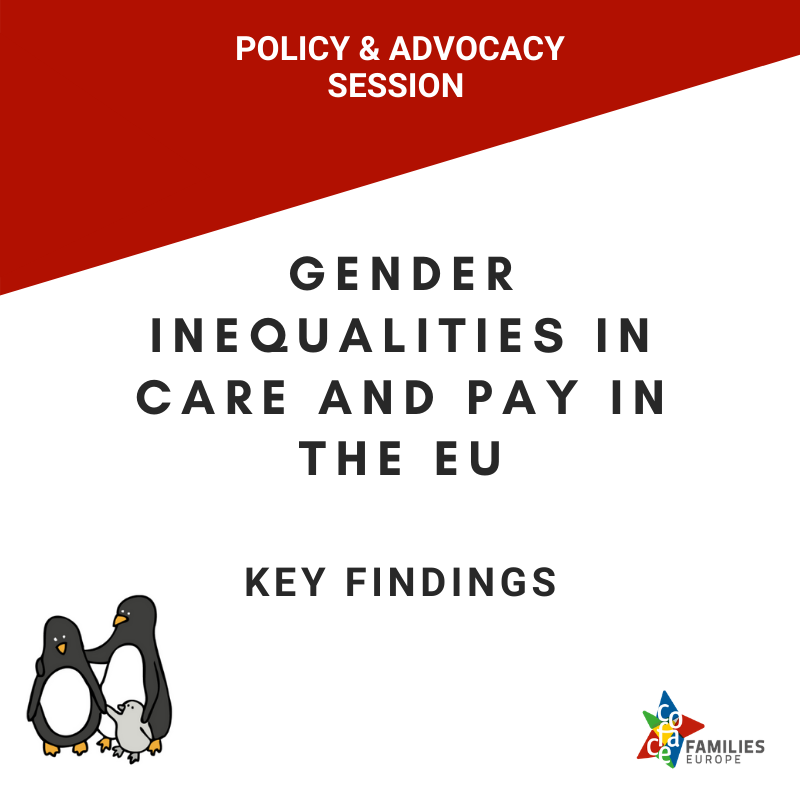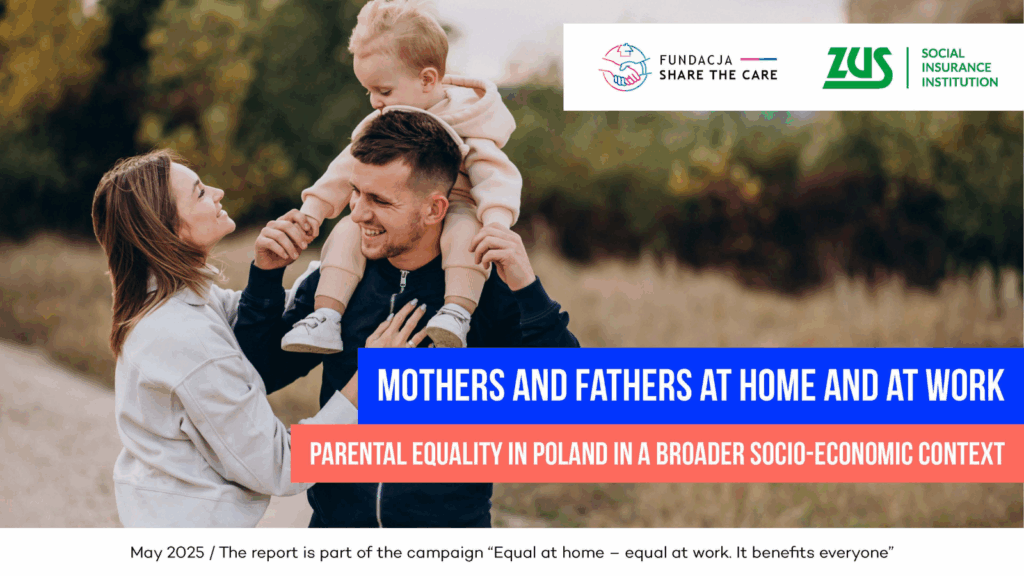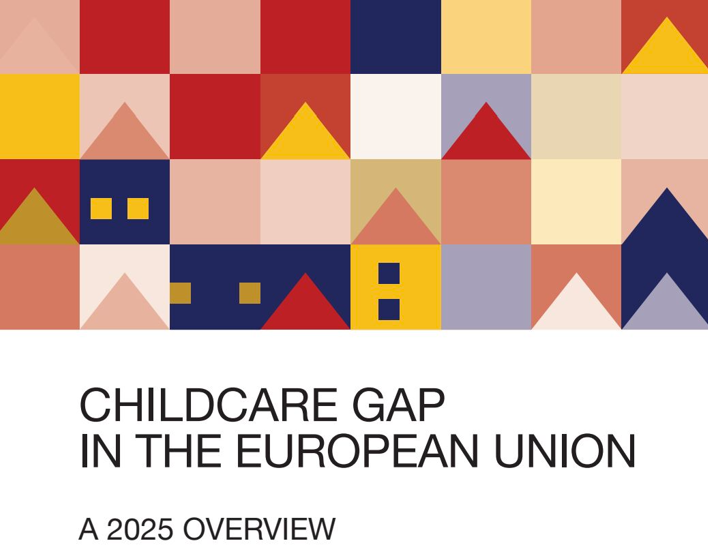For International Women’s Day 2021, COFACE hosted a Policy and Advocacy session on gender inequalities in care and pay on 9th March. This came in a crucial moment of social developments within the EU. The Study Session immediately followed the International Women’s Day (8th March), came after a year of the adoption of the European Commission’s Gender Equality Strategy (GES), a few months after the EPSCO Council conclusions adopted under the German Presidency of the EU with guidelines aiming at closing the care gap and the European Parliament voted its own report on the GES, and finally in the middle of the transposition of the EU Work-life balance directive adopted in 2019.
Different reports have stated that during the pandemic of Covid-19 the gender care gap is on the increase, with women taking up a disproportionate share of additional household and caring tasks, despite the fact that many men have been teleworking as well. The study session therefore gathered different stakeholders (researchers, policy makers, civil society organisations, industry) to analyse how to tackle different gender gaps (care and pay), exchange good practices and challenges, and how to build bridges within the different stakeholders involved.
Our family of Emperor penguins accompanied us throughout this Study Session. The Emperor Penguin is a perfect example that nature provides us of gender equality and co-responsibility. The Emperor Penguin tackles too the stereotypical vision of “traditional” and old-fashioned distributions of roles, where women are caregivers and men are the breadwinners, just as COFACE Families Europe has always been promoting.
Overarching messages from the study session:
- Employed women in the EU spend about 50% more on daily unpaid care than employed men. (3.9 hours/day and 2.6 hours/day respectively)
- Gender inequalities in care have far-reaching effects, including an under-prioritisation of investments in care services which are grossly insufficient to address the rising care needs of European societies.
- The societal value of care has been highlighted by the pandemic. A structural revaluation of unpaid and paid care work is needed in both society and the economy.
- Unpaid care is often considered the “missing link” in analyses of gender inequalities in pay. The gender pay gap and the gender care gap have to be analysed together (correlations and interdependencies).
- Solutions need to be based on a two-pronged approach to address the inequalities in the labour market and in unpaid care: firstly, providing a clear framework to allow for equal sharing of paid and unpaid work; secondly, the provision of public accessible community-based public infrastructure and services
- Particularly given the COVID-19 context and the visibility of women as the backbone of society in relation to care, now is the time to mainstream the German Presidency Council conclusions on the gender pay gap, adopted in December 2020, in national action plans for the Recovery and Resilience Facility.
- The EU Work-Life Balance Directive and similar transformative measures are needed to encourage take-up of caring roles by men.
- We need to connect research, policy, and practice to build strategic alliances to accelerate efforts to bring equality home, join forces and close the gender gaps for good.
For more information, please contact Pascual Martinez: pmartinez@coface-eu.org





